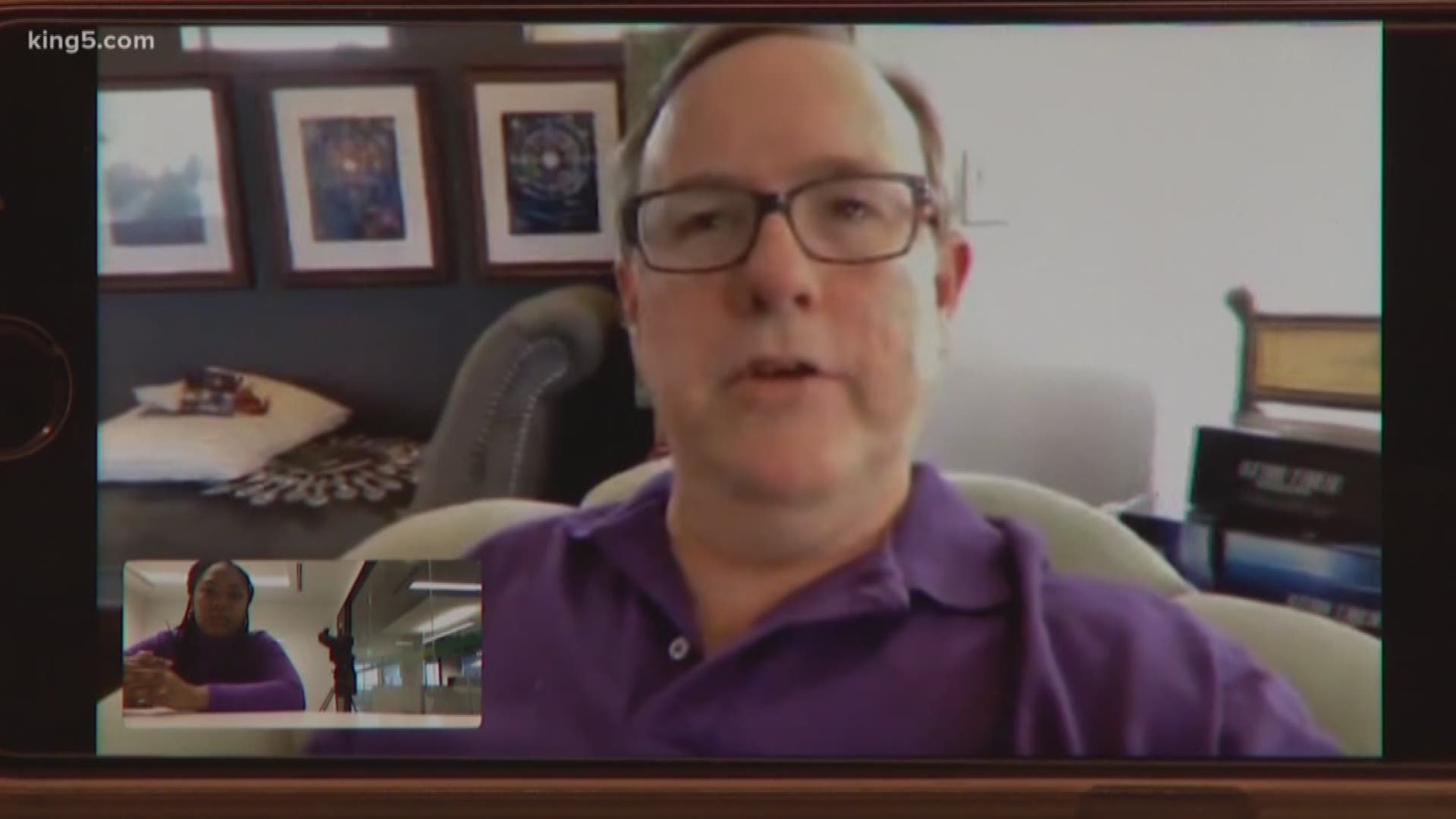SEATTLE — People with compromised immune systems are making changes to how they live in order to lessen their chances of contracting coronavirus.
Tad Donaghe, of Seattle, has chronic asthma and like many others, he's limiting contact with people.
"I don't want to have any worries. The hospitals are going to be full of people much older than me and I don't want to have to fight with somebody for a respirator or anything like that," said Donaghe.
People with medical conditions are paying extra attention to how the coronavirus is spreading, as the Centers for Disease Control and Prevention (CDC) and the World Health Organization (WHO) urge people to protect themselves.
"Right after I heard about the first cases in Kirkland, I think, that's when I started working from home. I worked from home all last week and maybe a couple days a week before," said Donaghe.
In the meantime, Donaghe is using delivery services to get groceries and anything else he may need.
"I'm not super worried as long as, well, we've had two people in the house in the past two weeks and that's about the rate of people into my house I can probably deal with right now," said Donaghe.
While he says the situation isn't ideal, especially for people with chronic illnesses, he's planning to stay at home until health officials give the all-clear.
"I don't want to, but I'm prepared to stay here for months if I have to," said Donaghe.
The CDC is advising people age 60 and older and those with underlying health problems to strongly consider avoiding activities that involve large crowds.
What are coronavirus symptoms?
The symptoms of coronavirus are similar to the flu or colds. Symptoms include a fever, cough, and shortness of breath or difficulty breathing, according to the Washington State Department of Health.
The severity of symptoms ranges significantly. Some cases are very mild with symptoms similar to the common cold, and some cases are more like severe pneumonia that require hospitalization. Most deaths have been reported in older adults who had other health conditions, according to DOH.
Symptoms may appear as soon as two days after being exposed to the coronavirus or as long as 14 days.
A new Washington call center has been set up to answer your questions about COVID-19. If you have questions about how the virus spreads, what is being done in Washington state, and what you can do if you have symptoms, call 1-800-525-0127 and press #.

